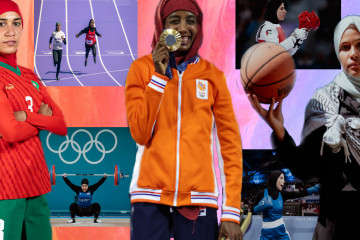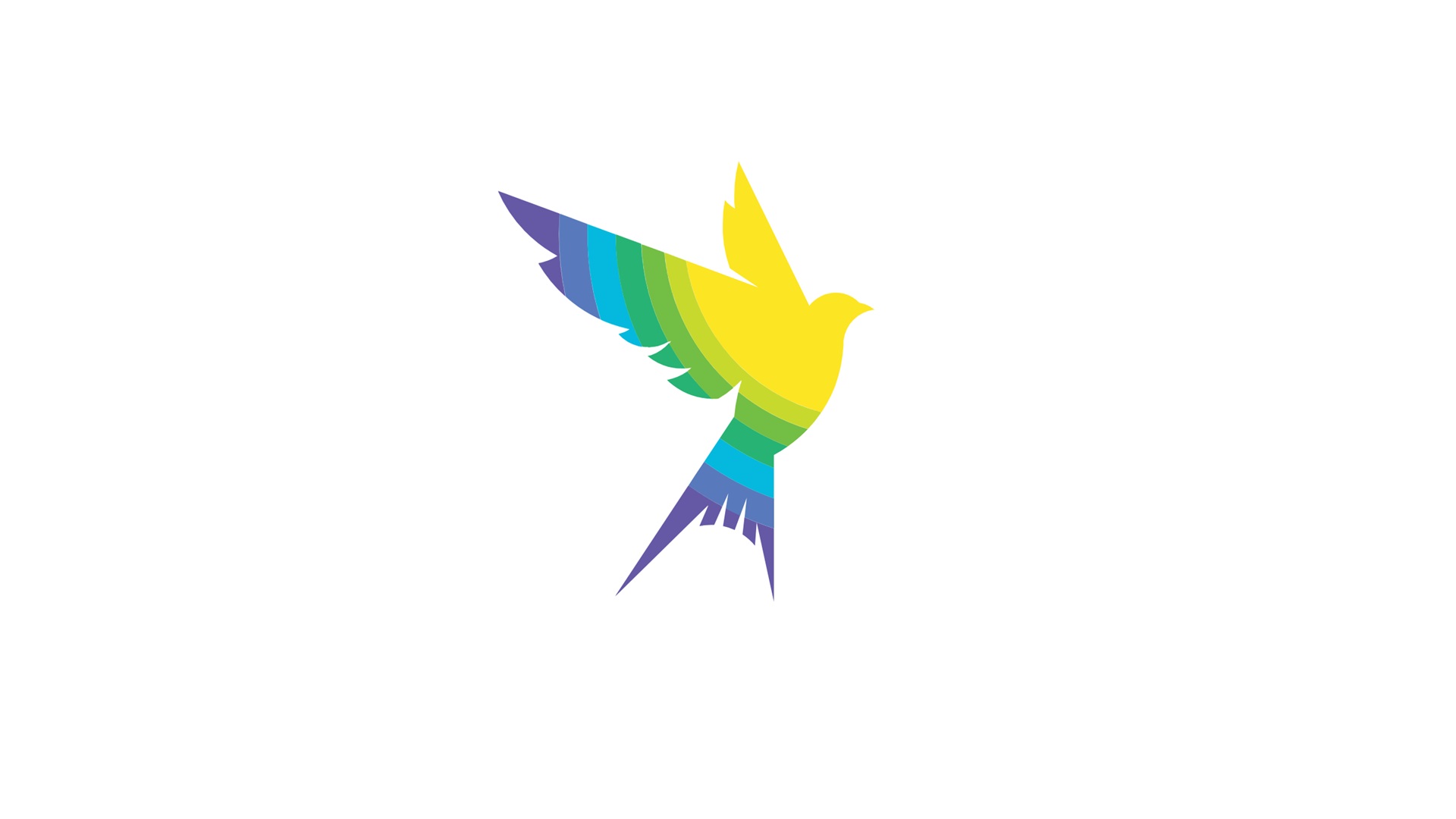

When Dutch Olympian runner Sifan Hassan wore a maroon hijab in the Paris Olympics 2024 closing ceremony to receive her gold medal, it was a moment of poetic justice for Muslim sportswomen and athletes around the world.
Sifan’s act of solidarity with the French hijab-wearing athletes who were banned from competing at the Paris Olympics heartened other hijab-wearing athletes like Saudi-British rower Alia Komsany.
“It was nice to see amidst all the negativity,” Alia, who has competed as part of Saudi Arabia’s national rowing team and has been following France's Olympics hijab ban closely, tells The New Arab.
Alia’s rowing career began during her days at the University of Oxford.
She says that at the time, rowing in Oxford was a predominantly white activity; however, her teammates were extremely welcoming and Alia carved out a space for herself, opening the way for other Muslim women to get into rowing.
“Of course, you get the odd derogatory comments where they try to undermine you, where they question where you're going with this, whether it [the hijab] is really necessary, these kinds of under-the-table comments,” she says.
As a sportswoman who is a strong advocate for other sportswomen to be able to wear whatever they feel comfortable in, Alia says France’s hijab ban on French female athletes is not only hypocritical, but it stands in opposition to feminist values and will deter not only Muslim women from competing but all women.
“It’s quite important to question the Western notion of feminism, how instead of empowering women, Muslim women are not given their agency and are excluded.
"It gives the wrong message; it says sports may not be for visibly Muslim women. You have to sacrifice your identity and your values to play sport,” she adds.
European-founded sporting federations like France-based FIFA (Fédération Internationale de Football Association) and Switzerland-based FIBA (the International Basketball Federation) have a long history of banning Muslim sportswomen from wearing the hijab.
Standing for what's right
The road to FIFA lifting its hijab ban was long.
In 2007, Canadian Muslim footballer Asmahan Mansour was banned from playing in a tournament in Ontario. Her team withdrew from the event and the case went to the Canadian Soccer Association and then FIFA.
FIFA not only upheld the ban on the premise of health and safety (although there is no data to support the hijab being dangerous on the pitch), but it created a whole hijab ban policy around it.
FIFA struck again in 2011 during a qualifying match for the 2012 London Olympics, when it banned Iran’s national women’s team from wearing their hijab when playing against Jordan.
The decision was widely criticised in Iran, including by former President Ahmadinejad, and at the end a compromise was reached where the Iranian footballers could wear a head covering on their heads that did not cover their necks.
FIFA finally lifted its hijab ban in March 2014.
The hijab has been banned by many basketball federations too, including FIBA.
In 2014, the Qatari women’s basketball team pulled out of a game against South Korea during the Asian Games, when they were told they could not play wearing the hijab.
FIBA stated at the time that its rules applied on a global scale. Three years later, the ban was lifted, thanks to a campaign by several hijab-wearing basketball players, including Sudanese-British basketball player Asma Elbadawi and her friend, Libyan-British veteran basketball player, Ezdihan Abd.
Asma Elbadawi and Ezdihan Abd used to play for Bradford’s women’s basketball team the Dragons and tell The New Arab that in the highly diverse city with a large Muslim population, no one batted an eyelid at Muslim women who wore the hijab on the court nor did any coach ever pointed to FIBA’s hijab ban.
It was only when they went to play against a team in Wales, that it posed a problem for the first time.
“As we arrived, someone shouted, ‘Go back home, go back to where you came from!’” recalls Ezdihan.
“We were just about to start playing as their coach says, ‘I'm not going to allow these girls to play.’ We covered our legs, arms and hair and she didn't like that. She said, ‘It's not within FIBA rules.’ And that was the first time someone said this about our clothing, usually, everyone is quite accepting of it.”
Asma continues, “At the end, the [Welsh] team played under protest because they said that we were wearing hijabs and we were covered more than the FIBA rules allowed.
"Normally teams only play under protest if you have elite players like the WNBA. Our coach told us they told him to tell us to take our hijabs off, but of course he didn’t.”
Asma and Ezdihan said they led the campaign against FIBA’s hijab ban not just for Muslim women, but for all women who want to dress modestly while playing professional basketball.
For them, seeing Sifan Hassan accept her gold medal during the Paris Olympics closing ceremony was a special moment.
“Hers was the last medal, so everyone was watching. I felt it was a huge statement and one that made me, as a Muslim woman, very proud because in that moment, I felt like she stood for something,” says Asma.
Despite FIBA lifting its hijab ban in 2017, in the same year, 16-year-old Je’Nan Hayes in Maryland, America, was made to sit on the bench after being banned from competing in her varsity basketball team’s championship game because of her hijab.
She had played 24 out of 25 games wearing it and it was in her final game that a coach suddenly told her she could not play because of her “headgear.”
Only as recently as 2022, French Muslim basketball player Diaba Konate discovered she was barred from competing in a tournament in France if she wore her hijab on court after new regulations by the FFBB (French Federation of Basketball) banned it.
Trickle-down effect on all Muslim women
Hijab bans not only affect female Muslim athletes and sportswomen at a professional level but, as Leicester-based veteran roller derby player and cyclist Sarah Jasat points out, it has a trickle-down effect on all women.
Sarah says sportswomen like herself have put in a huge amount of effort into sports advocacy for women in ethnic minority and Muslim communities, and hijab bans like that at the Paris Olympics, undo that advocacy work.
“There are so many barriers already, so things like a hijab ban just further solidifies the idea that sports are not for the Muslim women, being active is not your domain,” Sarah tells The New Arab.
“There’s all this subconscious stuff already that women have taken on and we know that South Asian women and global majority women don't have very good levels of activity in the first place, so you should be doing the opposite and trying to do everything to get them into sports. The last thing we want is higher up for that image of sporting excellence to exclude Muslim women.”
Sarah says her experience as a roller derby player was a very positive one; she credits this to the fact it is an alternative and up-and-coming sport where tournaments are usually organised at a grassroots level, making it more inclusive.
France’s recent hijab ban at the Paris Olympics was particularly worrying for London-based British-Bangladeshi rower Shayma Ahmed, who has set her sights on making the GB rowing team.
She tells The New Arab that her experience at the GB Development Academy was largely positive and her coach went out of his way to accommodate her hijab and modest attire.
However, before she joined the Academy, she says she did have an incident in her first club where a captain tried to prevent her from rowing because of her modest attire.
“Two days before one particular race, one of the captains turned around and said I can't compete with them if I don't wear the all-in-one uniform and I explained that due to religious purposes, I don't wear that and I've never worn that while competing with them before, so I don't see how this is now an issue," she tells The New Arab.
“She refused to listen and it made me feel bad like all of the hard work I put in over the past year didn’t matter if I didn't wear the uniform. I stood firm and said, ‘Look at the end of the day, I'm going to be wearing it whether you like it or not. If I'm not allowed to wear it [modest dress], then I'm not going to be competing. And that means that you won't have someone in the boat. Which means nobody will be able to compete.’”
Shayma is hopeful that should she make the national team the GB uniform will be adapted to meet her hijab and modest dressing requirements.
However, having seen the steps France has taken, she does sometimes worry whether neighbouring countries will follow suit, as countries such as Belgium have done with other hijab bans, and whether this could influence British rules.
“At the end of the day, the Saudi rowing team has hijabi athletes, the Iranian rowing team has hijabi athletes and there's always a way of working around things," she continues.
"In Britain, you don't see many of us [hijabis] in sports. I feel they probably wouldn't ban it as sports have slowly become diversity and inclusion-focused. However, having said that, you can never really tell; sometimes in neighbouring countries suddenly things get banned out of nowhere and our identities are jeopardised.”
Yousra Samir Imran is a British Egyptian writer and author based in Yorkshire. She is the author of Hijab and Red Lipstick, published by Hashtag Press
Follow her on X: @UNDERYOURABAYA





 Follow the Middle East's top stories in English at The New Arab on Google News
Follow the Middle East's top stories in English at The New Arab on Google News


